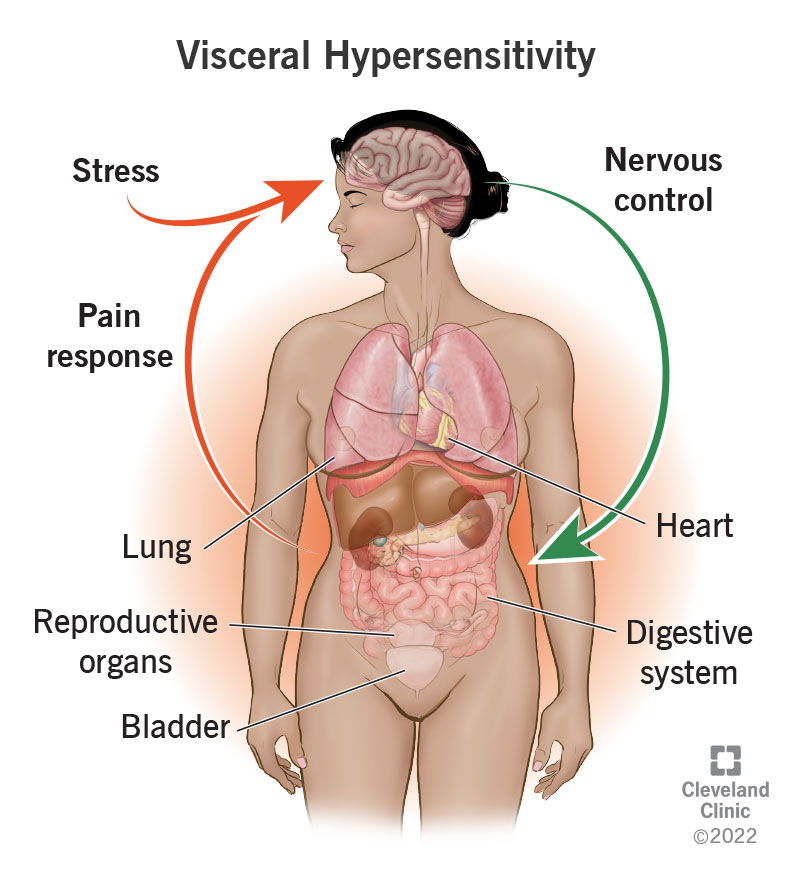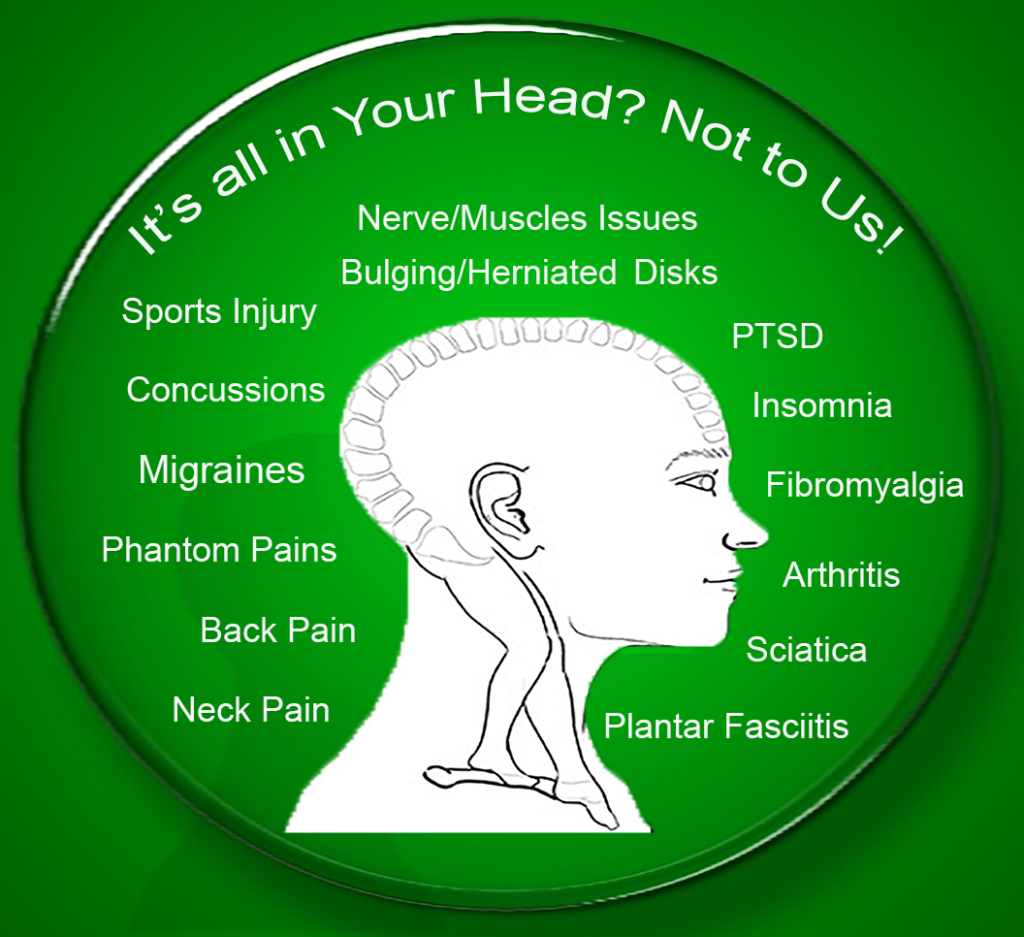Could Your Pain Be All in Your Head?
Pain perception involves brain processing. Understanding may uncover mental or emotional factors influencing physical discomfort.
Consideration of psychological aspects can sometimes provide insight for managing or treating pain effectively. Delving into the mind-body connection offers a holistic approach to pain management, recognizing the interconnectedness of mental and physical well-being. This mindset shift reframes pain as a multidimensional experience, acknowledging the impact of emotions and thoughts on physical sensations.
By exploring the potential psychological roots of pain, individuals may find new avenues for relief and healing beyond conventional treatments. Integrating mind-body strategies can offer personalized and comprehensive approaches to addressing and alleviating pain manifestations.
Understanding Psychosomatic Pain
Psychosomatic pain, often dismissed as being “all in your head,” is a real phenomenon that deserves attention. By understanding the connection between the mind and body, we can address the root causes and find effective solutions for this type of pain.
Understanding Psychosomatic Pain Psychosomatic pain refers to physical discomfort or symptoms that are caused or worsened by psychological factors such as stress, anxiety, or emotional distress. It is important to note that psychosomatic pain is not imaginary – the physical symptoms are real, but their origin is rooted in the mind rather than in a specific physical injury or disease.This type of pain is often misunderstood and can be challenging to diagnose and treat. However, gaining a deeper understanding of it can be instrumental in finding relief and managing symptoms effectively.Definition
Psychosomatic pain is a condition where physical pain or other symptoms are experienced due to psychological factors such as stress, anxiety, or emotional distress rather than an underlying physical cause.Common Symptoms
A person experiencing psychosomatic pain may have a range of physical symptoms, including headaches, back pain, stomach aches, muscle aches, and fatigue, that cannot be explained by a specific physical injury or illness. These symptoms often persist despite medical treatments and can significantly impact daily life and overall well-being. By understanding the nature of psychosomatic pain and its manifestations, individuals and healthcare providers can work towards addressing the root psychological causes and implementing strategies to manage and alleviate the symptoms effectively.
Credit: www.pathways.health
Factors Contributing To Psychosomatic Pain
Psychosomatic pain is a complex phenomenon where physical symptoms are caused or aggravated by emotional or psychological factors. It emphasizes the mind-body connection and the impact of stress, trauma, and unresolved emotional issues on one’s physical well-being. Understanding these contributing factors is crucial in addressing pain that may be rooted in the mind.
Factors Contributing to Psychosomatic Pain Many might wonder if their pain is all in their head. At times, the answer could indeed lie in the complex interplay between emotional stress, past trauma, and personality traits. The role of emotional stress cannot be overlooked when addressing psychosomatic pain. Individuals experiencing high levels of stress may manifest physical symptoms as a result. Emotional Stress Body’s response to stress can manifest as physical pain. Managing stress effectively can help alleviate symptoms associated with psychosomatic pain. Past Trauma Past traumatic experiences can resurface in the form of physical pain. Addressing unresolved trauma through therapy or counseling might aid in pain management. Personality Traits Certain personality traits like perfectionism or high levels of anxiety can contribute to psychosomatic pain. Recognizing these traits is crucial in addressing the root cause of pain. Understanding the various factors contributing to psychosomatic pain is essential in developing effective treatment plans. By delving into emotional stress, past trauma, and personality traits, individuals can gain insights into managing their pain more effectively.Effects Of Psychosomatic Pain On The Body
Psychosomatic pain can have significant physical manifestations and impact daily life.
Physical Manifestations
- Headaches
- Stomach pains
- Muscle tension
These physical symptoms can be caused by stress or emotional distress.
Impact On Daily Life
- Decreased ability to focus
- Reduction in quality of sleep
- Interference with daily activities
Psychosomatic pain can have a profound effect on overall well-being.
Credit: www.bswhealth.com
Treatment And Management
When it comes to managing and treating pain that may have a psychological component, there are various strategies and techniques that can be effective in alleviating discomfort and improving overall well-being.
Psychological Therapies
Psychological therapies, often known as talk therapies, can play a crucial role in addressing pain that has underlying psychological factors.
Cognitive-behavioral therapy (CBT), for instance, focuses on challenging and changing unhelpful thoughts and behaviors that contribute to pain. It helps individuals develop coping strategies and techniques to manage their symptoms effectively.
Another therapy, mindfulness-based stress reduction (MBSR), incorporates meditation and gentle yoga to help individuals become more aware of their thoughts and bodily sensations, thereby reducing stress and improving pain management.
Stress Management Techniques
Individuals experiencing pain with a psychological component can benefit from learning stress management techniques to reduce the impact of stress on their symptoms.
- Deep breathing: Practicing deep breathing exercises can help relax the body and mind, reducing muscle tension and enhancing overall well-being.
- Progressive muscle relaxation: This technique involves tensing and then relaxing different muscle groups in the body to promote relaxation and reduce physical tension.
Other stress management strategies such as regular exercise, meditation, yoga, and spending time in nature can all contribute to minimizing stress and improving pain management.

Credit: my.clevelandclinic.org
Frequently Asked Questions Of Could Your Pain Be All In Your Head?
Can Emotional Stress Cause Physical Pain?
Yes, emotional stress can manifest as physical pain due to the mind-body connection and the release of stress hormones.
How Does The Brain Perceive Pain?
The brain perceives pain through a complex network of sensory pathways that transmit signals from the body to the brain.
What Is The Role Of Psychology In Pain Management?
Psychology plays a crucial role in pain management by addressing the psychological factors that contribute to chronic pain and developing coping strategies.
Conclusion
Pain is a complex experience. It involves both physical sensations and how the brain perceives and processes them. Understanding the mind-body connection is crucial in managing chronic pain. Consulting with healthcare professionals who specialize in pain management is key to addressing both the physical and psychological aspects of pain for holistic treatment.





